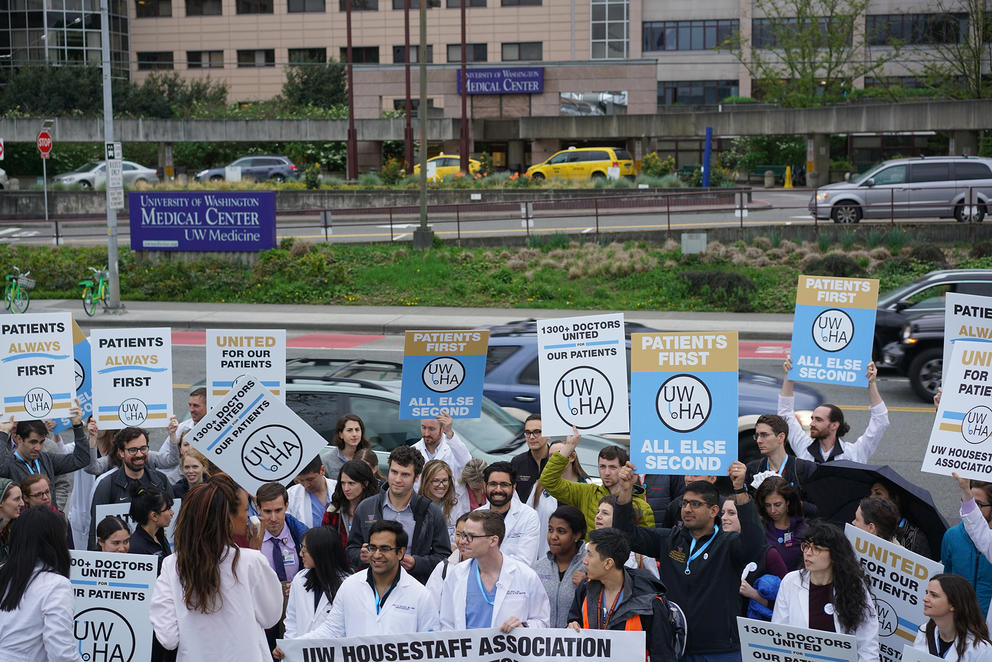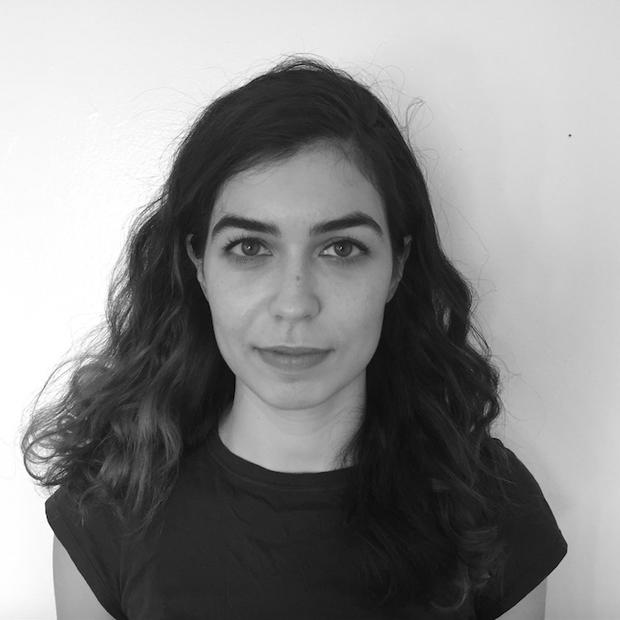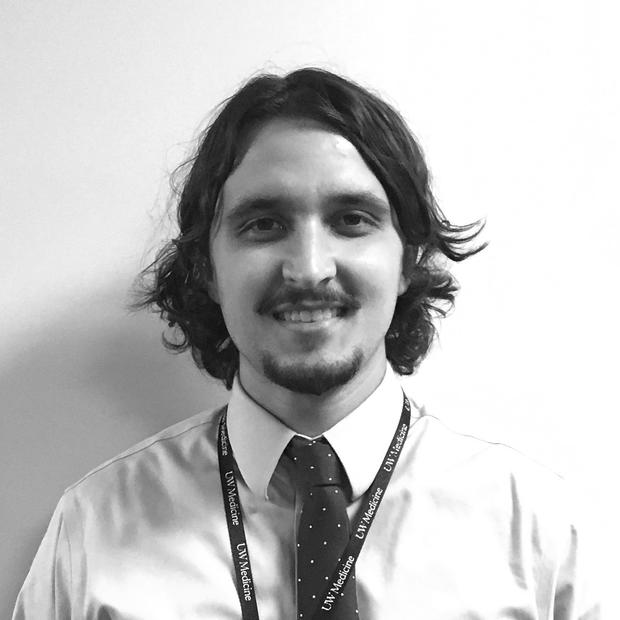We face the same struggles as many Seattle workers, while working the equivalent of two full-time jobs. Plus, we are among the worst paid residents in the country, according to data compiled by our union, the University of Washington Housestaff Association. We spend our time at work struggling to manage our patient load and we return home struggling to pay our bills. We are forced to live in some of the most expensive neighborhoods in Seattle so we can quickly address unexpected hospital emergencies for our patients. Some residents cannot afford medical care at our own hospitals, requiring us to receive charity care. As such, during contract negotiations with UW, we have reasonably requested wages on par with peer institutions nationwide, including public institutions such as the University of Michigan; University of California, San Francisco; and University of California, Los Angeles.
We cannot ensure our own safety. Residents are scheduled for 28-hour shifts in the hospital, longer if issues arise — all without rest or dedicated breaks. One-third of us end up falling asleep while driving and up to half of us crash or nearly crash our cars. UW does have a policy to pay cab fare for a safe ride home, but routinely rejects requests for reimbursement. Indeed, residents who work overnight for 28 hours straight are typically not allowed to use this service, as their shifts generally end during business hours the next day. Many peer institutions put resident safety first and provide unrestricted access to this service, helping to protect both their residents and the public.
We cannot afford to have children. By the time we enter residency we’ve already completed eight or more years of postsecondary education. Residency, which takes three to seven-plus years to complete, comes at an age when many people want to start a family. For many residents, particularly female residents, when to have children is no longer a choice. Delay of childbearing is dictated by the harsh working hours, low pay and the stigma of putting family ahead of our work (in fact, the trend of turning to in vitro fertilization later in life has been studied). Resident parents face undue hardship; they cannot afford child care. The cost of 40 hours a week of child care would exceed half of a resident’s salary. Yet a resident needs 80 hours a week of child care, which is impossible without a full-time nanny or a stay-at-home partner. One resident explained this at the negotiation table with UW and became so emotional that she broke down crying. UW currently offers only 14 hours of childcare per year for residents with children, about 20% of our members, according to an analysis by our union.
And this doesn’t only hurt us; it hurts our patients. It has been long-observed and well-studied that diverse medical providers deliver better care. Increasingly, only those with a highly-paid partner or a wealthy background can afford to train at UW. In effect, the University is selecting for the richest, whitest medical trainees by failing to provide wages its residents can live on. Indeed, UW struggles with recruiting residents, ranking near the bottom of residencies with regard to unfilled spots. Our patients deserve better.
Doctors are resilient, but at some point, our coping mechanisms break down. A study of UW’s own residents showed that three-fourths of UW residents are burned out, meaning many feel emotional exhaustion and a low sense of accomplishment, which reduces job effectiveness. In this study, residents were so overwhelmed that they admitted to discharging patients from the hospital for the sole purpose of decreasing their workload. Some admitted to making medical errors resulting from stress and fatigue. This is unacceptable.
Consistent with our medical training, we are fighting for the health and safety of our members and our patients. UW is filled with hardworking and passionate people: from doctors and nurses to custodial workers, physical therapists to facilities engineers. Like all workers in Seattle, we deserve to be valued and respected.
As UW physicians, we have dedicated ourselves to providing superb patient care. Our unity break today is meant to show UW that it must take care of its employees if it wants to provide the highest level of care to the people of Seattle, greater Washington and the entire Northwest. Our residents no longer can afford housing or child care. How are we supposed to take care of our patients if we can’t take care of ourselves or our families? We want the University of Washington to do the right thing by its patients, and in this case that means taking care of its doctors.




